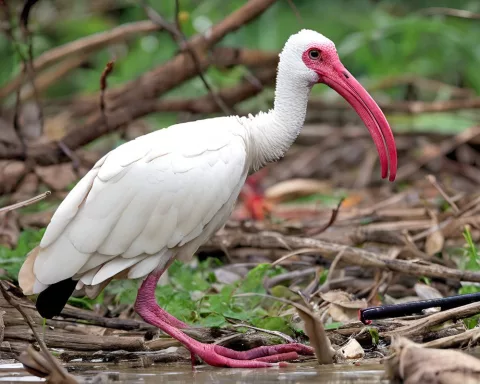The Durban Occupational Health and Safety Conference 2023 aims to bring together stakeholders to share best practices and explore technical cooperation in the changing work environment. With a focus on collaboration, the conference highlights OHS as the fifth principle in ILO’s fundamental rights and principles at work, emphasizing the need for a comprehensive response from all parties involved. South Africa’s commitment to integrating this right into its workplaces demands a systematic approach and the commitment of all role players, enabling the ongoing enhancement of OHS policies and ensuring decent work conditions for all citizens.
What is the Durban Occupational Health and Safety Conference 2023 about?
The Durban Occupational Health and Safety Conference 2023 aims to provide a platform for stakeholders to share best practices and explore avenues for technical cooperation in the changing work environment. It emphasizes collaboration, recognizing OHS as the fifth principle in ILO’s fundamental rights and principles at work. South Africa’s dedication to integrating this right into its workplaces demands a systematic approach and the commitment of all role players.
Shaping the Future of Occupational Health and Safety
South Africa’s Department of Employment and Labour is preparing to host a groundbreaking Occupational Health and Safety (OHS) Conference in Durban, KwaZulu-Natal, from November 7-9, 2023. As work environments continue to evolve and employment patterns shift, the importance of OHS has undergone a significant transformation. This three-day event aims to confront these challenges by offering a platform for stakeholders to share best practices while exploring avenues for technical cooperation.
South Africa’s dedication to the National Development Plan (NDP) outcomes 2 and 4, African Union Agenda 2063 Aspiration One, and Sustainable Development Goals (SDGs) 3 and 8 emphasize the need for inclusive economic growth, quality employment, and a focus on the health and wellbeing of its citizens. In this context, the Department of Employment and Labour’s Inspections and Enforcement Services Branch has established four strategic pillars: capacity building and development, advocacy, inspection, and enforcement.
The conference theme, “Collaboration and Strategic Approach to Enhance Decent Work in an Evolving World of Work,” reflects the OHS strategy addressing these strategic pillars through five strategic result areas. These consist of coherent and effective legislation and policy, advocacy, communication, cooperation, capacity building and development, labor inspection and enforcement, OHS management systems and preventive risk management at enterprises, and strategic information through proactive research and data collection.
Fostering Collaboration and Strengthening Partnerships
The primary objectives of the conference are twofold: to encourage the sharing of best practices and experiences among stakeholders in implementing preventive measures and to pinpoint areas for OHS technical cooperation, including within the informal economy. This emphasis on collaboration, along with the recognition of OHS as the fifth principle in the International Labour Organization‘s (ILO) fundamental rights and principles at work, highlights the necessity for a comprehensive response from all parties involved.
South Africa’s dedication to integrating this right into its workplaces demands a systematic approach and the commitment of all role players. This commitment enables the ongoing enhancement of OHS policies, which will be executed and enforced through collaboration and strategic cooperation, ultimately realizing the vision of decent work conditions for all citizens.
The Occupational Health and Safety conference, organized by the Department of Employment and Labour, recognizes the evolving nature of work and its impact on OHS. It seeks to assemble innovative minds to share experiences and solutions for the challenges encountered in this constantly changing environment. The underlying purpose of this gathering is to promote sustained improvements in OHS through long-term collaboration and strategic partnerships.
Anticipating a Revolutionary Event in OHS Development
As the conference draws nearer, anticipation continues to grow within the media and the broader OHS community. The event will take place at the Coastlands on the Ridge Hotel in Musgrave, Durban, and members of the media are invited to attend and cover the proceedings. With an ambitious agenda and a strong commitment to collaboration, the conference is expected to be a milestone in the advancement of South Africa’s Occupational Health and Safety landscape.
In summary, the Department of Employment and Labour’s upcoming conference in Durban represents a significant stride in South Africa’s progress towards improved OHS policies and practices. By cultivating an atmosphere of collaboration and shared learning, the event aims to address the challenges of an evolving world of work and support the nation’s vision of decent work conditions for all.
1. What is the Durban Occupational Health and Safety Conference 2023 about?
The Durban Occupational Health and Safety Conference 2023 aims to provide a platform for stakeholders to share best practices and explore avenues for technical cooperation in the changing work environment. It emphasizes collaboration, recognizing OHS as the fifth principle in ILO’s fundamental rights and principles at work.
2. Why is the conference being held?
The conference is being held to confront the challenges of an evolving work environment and support South Africa’s vision of decent work conditions for all. It aims to encourage collaboration and shared learning among stakeholders, and to pinpoint areas for OHS technical cooperation.
3. When and where will the conference take place?
The conference will take place from November 7-9, 2023, at the Coastlands on the Ridge Hotel in Musgrave, Durban.
4. Who is the conference aimed at?
The conference is aimed at stakeholders involved in OHS, including government bodies, employers, workers, trade unions, academics, and experts in the field.
5. What are the primary objectives of the conference?
The primary objectives of the conference are twofold: to encourage the sharing of best practices and experiences among stakeholders in implementing preventive measures, and to pinpoint areas for OHS technical cooperation.
6. What themes will the conference focus on?
The conference theme is “Collaboration and Strategic Approach to Enhance Decent Work in an Evolving World of Work,” reflecting the OHS strategy addressing five strategic result areas: coherent and effective legislation and policy, advocacy, communication, cooperation, capacity building and development, labor inspection and enforcement, OHS management systems and preventive risk management at enterprises, and strategic information through proactive research and data collection.
7. What is South Africa’s commitment to integrating OHS in its workplaces?
South Africa’s dedication to integrating OHS into its workplaces demands a systematic approach and the commitment of all role players. This commitment enables the ongoing enhancement of OHS policies, which will be executed and enforced through collaboration and strategic cooperation.
8. What is the expected outcome of the conference?
The conference is expected to be a milestone in the advancement of South Africa’s Occupational Health and Safety landscape. It aims to promote sustained improvements in OHS through long-term collaboration and strategic partnerships.








